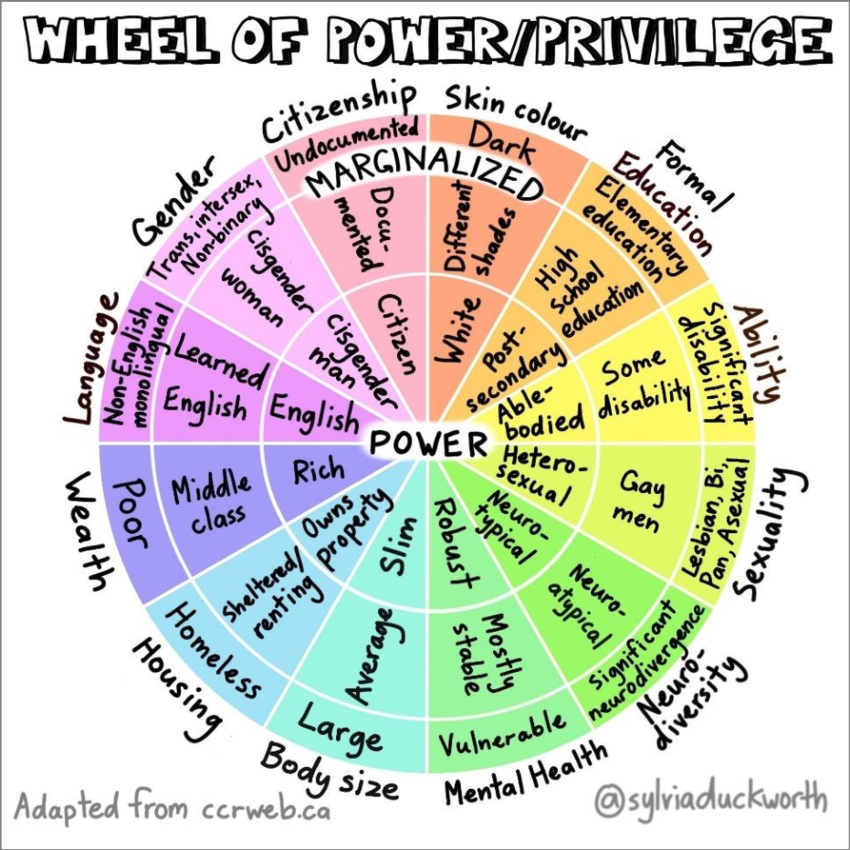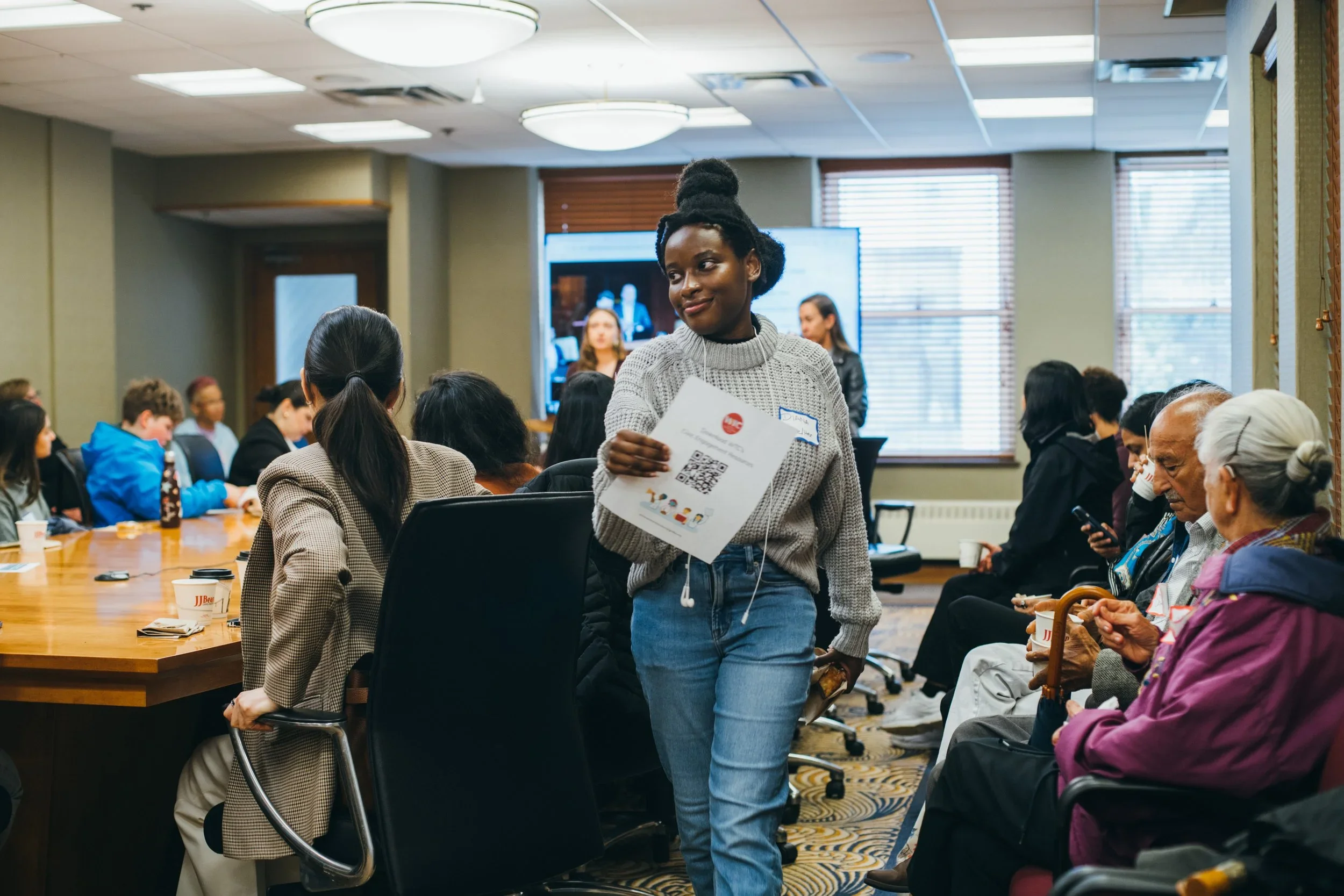What Is Intersectional Feminism?
The work that we do at Women Transforming Cities is rooted in intersectional feminism, one of the frameworks that guides us in our work towards making cities equitable for women, girls, trans, genderqueer, non-binary, Two-Spirit, LGBTQIA++ and allies.
Intersectional feminists understand that an individual’s experiences of oppression and privilege change based on the identities that are put upon them by society or that they hold for themselves. A person’s identities impact what oppression they face and what privilege and power they have access to.
Take a look through the categories shown in this graphic from Sylvia Duckworth’s Wheel of Power/Privilege below. Did anything jump out to you?
We practice intersectional feminism in our everyday lives, and that includes how we shift social, economic, and political power to equity-deserving groups at the municipal level.
The Origin of Intersectionality
Although the term intersectionality has risen in popularity in recent years, it was introduced by legal scholar and civil rights activist Kimberlé Crenshaw in her 1989 paper “Demarginalizing the Intersection of Race and Sex: A Black Feminist Critique of Antidiscrimination Doctrine, Feminist Theory, and Antiracist Politics” to describe the specific oppression that Black American women face that is different to the oppression Black American men face, or white American women face.
In Crenshaw’s Ted Talk on “The Urgency of Intersectionality,” she brings up a 1976 legal case, DeGraffenreid v. General Motors, where a group of Black women sued a car manufacturing plant for discrimination, claiming the car manufacturing plant did not hire them because of their race and gender. The case was dismissed by the judge, who stated that there was no evidence of discrimination because they hired Black people and they hired women. What the judge didn’t recognize is that all the Black people General Motors hired were men, and all the women were white. The judge had failed to see how race and gender were intersecting to create a new and distinct experience of discrimination for these Black women.
Crenshaw describes intersectionality as a “metaphor to understand how multiple forms of inequality or disadvantage sometimes compound themselves and create obstacles that often are not understood within conventional ways of thinking about anti-racism or feminism or other social justice advocacy structures.”
Taking into account the ways in which different identities experience the world in distinct ways can help us create better policies for all of us. For example, if we think about something as simple as crossing the street, we can see the importance of applying an intersectional lens. The time it would take for an able-bodied youth to cross a street will be different than the time it would take for a senior, which would be different than a senior who is also living with disabilities and/or using a mobility device.
Intersectionality can be a powerful lens to understand how social justice issues overlap and intersect, and why we need to stop treating systems of oppression as separate silos. As Audre Lorde wrote in an essay found in Sister Outsider, “there is no such thing as a single-issue struggle because we do not live single-issue lives.”
Intersectional Feminist Movements in Local Government Advocacy
Public policies impact people differently.
By using an intersectional lens in local government advocacy, we can identify how policies and programs will impact different groups, what barriers prevent women and equity-deserving genders from participating in local government, and find solutions that work for everyone. Take, for example, a recent motion that came to Vancouver City Council, which called for more public washrooms throughout the city. Understanding how a lack of washrooms in public spaces uniquely impacts parents with small children, people living with disabilities, seniors, and low-income individuals is a great starting point for understanding the strong need for policy solutions that meet the needs of various communities.
When local decision-makers practice intersectionality, they can build cities that are more equitable to meet the needs of people.
Get Involved with Women Transforming Cities
We offer workshops to corporate organizations and community groups and one of our popular offerings are workshops to embed equity into your life and work.
If you’re interested in a deep dive of intersectional practices for your team, get in touch with us to learn more about how we can accelerate action on gender equity.


